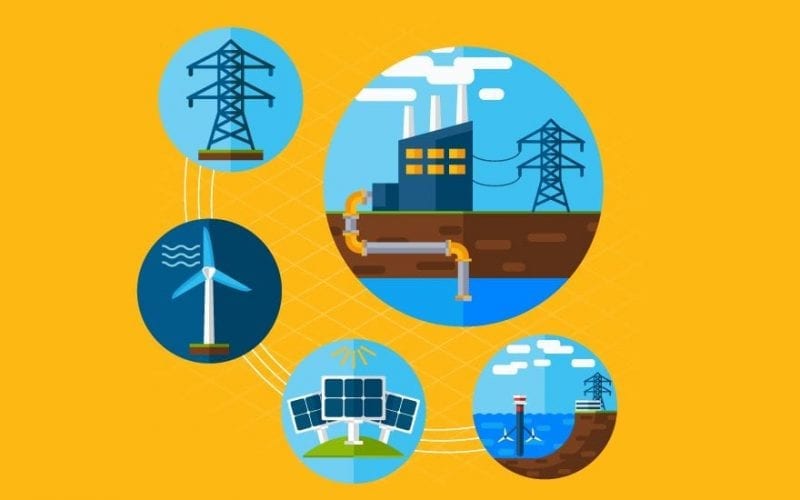Environmental sustainability has become the need of the hour. With industrialization and commercialisation, our natural resources are facing depletion and degradation which is further causing a hazardous impact on our environment. With colossal chemical waste being released on a regular basis, our planet is at perilous risk. Thus, it is essential to gather the right set of tools and take significant steps towards ensuring sustainable development. One such emerging field aiming to study the impact of chemical wastage on our planet is Environmental Chemistry.
It is concerned with examining the effects of releasing chemical substances in water, soil and air as well as on human beings. If you have always aspired towards a career in Ecology and Environment, then you must consider this specialised domain. Through this blog, we aim to elucidate the essential features of Environmental Chemistry, courses offered, top universities as well as the scope you can avail in this field.
Environmental Chemistry: Course Overview
The term basically refers to the study of the environment and the chemical processes taking place and their corresponding effects through anthropogenic activities. An array of degree and diploma courses are being offered in the emerging field of Environmental Chemistry. Studying an academic program in this specialisations, candidates are familiarized with varied concepts like assessing a chemical waste site, chemical waste impact on a global scale, calculating the urban air pollutants, dissolving the toxic substance coming from chemical waste, amongst others.
Also Read: Energy Management- Find Your Sustainable Career Path
Environmental Chemistry: Course Curriculum
Since, Environmental Chemistry is more of a specialised field of study, the course offerings are meticulously designed to provide students with the general basics as well as advanced concepts. Though the syllabus of a program in this field may vary, we have listed some of the core subjects in this field in the following table:
| Stratostrophic Chemistry | Photochemical Smog Processes |
| Ozone Holes | Chemistry of Natural Waters |
| Tropospheric Chemistry | Classification of Toxic, Heavy material |
| Photochemical Smog Process | Spectroscopy and Remote sensing |
| Climate Change and Energy | Chronic Toxicity |
| Water Chemistry and Water Pollution | Analyzing Organic Pollutants |
| Green House Effects | Particles and Air Wrap-up |
Top Universities & Courses in Environmental Chemistry
Selecting a university for your chosen field of interest is a task which needs an expert’s supervision. As a university has an incremental role to play in transforming a student’s career and exposing them to numerous growth opportunities. There is an array of academic institutions across the globe that offer a multitude of diploma and degree courses in Environmental Chemistry. Some of the major universities and their prospective offerings are summarized in the following table:
| University | Courses |
| University of Aberdeen | BSc in Environmental ChemistryMSc in Oil and Gas ChemistryMChem in Environmental Chemistry |
| University of Alicante | BSc Honors in Chemistry with Environmental ChemistryMaster’s in Sustainable and Environmental Chemistry |
| University of York | Graduate Diploma in Green Chemistry and Sustainable Industrial Technology |
| The University of Edinburgh | Graduate Diploma in Biochemistry |
| Memorial University of Newfoundland (Grenfell Campus) | Bachelor’s in Environmental Science Chemistry |
| University of Copenhagen | Master’s in Environmental Chemistry |
| Masaryk University | Master’s in Environmental Chemistry and Health |
| Tomas Bata University in Zlin | Master’s in Chemistry and Materials Technology (Specialization in Environmental Protection Engineering) |
| George Washington University | MS in Environmental and Green Chemistry |
| University College Cork | MSc in Environmental Analytical Chemistry |
Entry Requisites
If you are willing to get enrolled under the programs mentioned above or any other course in this field, you must possess the formal schooling of 10+2 with MPC Subjects. Further, if you are aspiring to pursue Environmental Chemistry courses abroad, the central requirements for bachelor’s or diploma level courses are:
[optin-monster-shortcode id=”xf2mlnjiouddzrshykdb”]- English language proficiency tests like IELTS, TOEFL, etc.
- Letter of Recommendation (LOR) and Statement of Purpose (SOP)
Whereas for a master’s program in this specialisation, students need to have an undergraduate degree in this domain or its equivalent.
Have a look at: Sustainable Tourism Courses
Career Prospects
After acquiring a degree in this domain, students can acquire a plethora of positions in both public as well as private sector. As environmental conservation is becoming a crucial issue that needs to be addressed, there is a dire need of professionals in almost every sub-field of Environmental Science. Some of the key roles in Environmental Chemistry include an array of tasks such as analyzing air, water and soil pollution, preparing reports of assessments, assisting in the improvement of production processes and the development of remediation programs. Below listed are a few of the key job profiles in this field that you can choose from:
- Climate Change Specialist
- Analytical Chemist
- Biometrician
- Chemical Technician
- Pollution Contol Technologist
- Environmental Engineer
- Environmental Scientist
- Environmental Epidemiologist
- Oceanographer
- Biological Technician
Check Out: Career in Environmental Management
Hence, we hope that this blog has helped you understand the varied characteristics of environmental chemistry and what it entails as a career. If you are planning to study this field and don’t know which course to opt for, reach out to our experts at Leverage Edu and we’ll lend you a helping hand in finding a suitable course and university that can equip you with the required set of skills and knowledge to establish a thriving career in this domain.

 One app for all your study abroad needs
One app for all your study abroad needs






















 45,000+ students trusted us with their dreams. Take the first step today!
45,000+ students trusted us with their dreams. Take the first step today!


